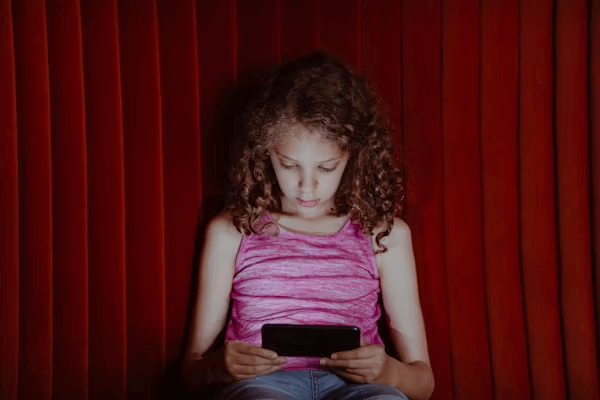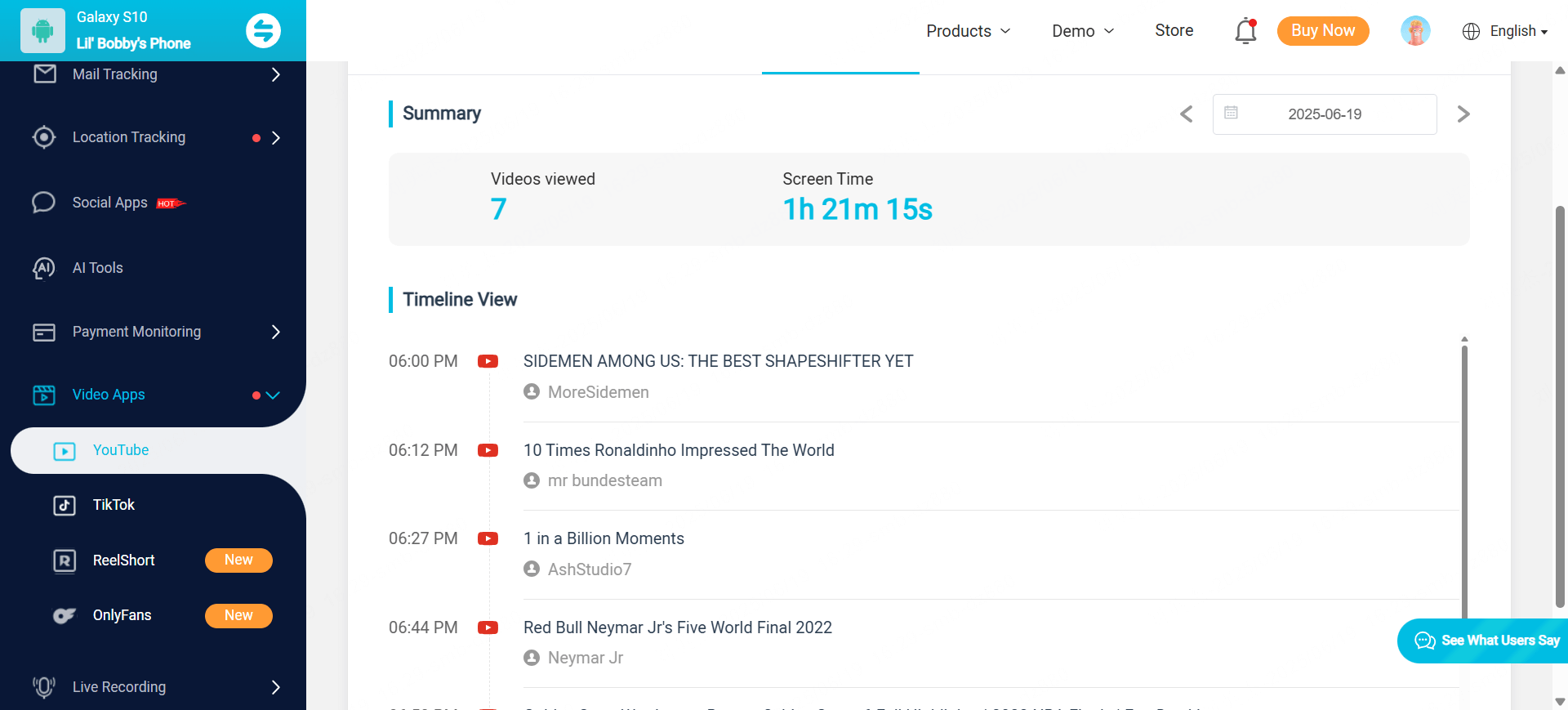ClevGuard Support: Monitor Devices with Others' Permission.

The term "chronically online" is gaining attention in parenting circles—and for good reason. It refers to individuals, especially youth, who spend so much time immersed in internet culture that it begins to shape their personality, beliefs, and daily life.
For parents of Gen Z and younger children who've grown up with smartphones, this phenomenon is increasingly relevant. While the internet offers benefits—social connection, learning, creativity—excessive online immersion can lead to emotional, social, and cognitive challenges.
This article aims to explain what being chronically online means, why it's so appealing to teens, and how parents can take supportive steps to help their children maintain a healthier digital balance.
Table of Contents
What Does It Mean to Be Chronically Online?
The phrase "chronically online" originated as internet slang, often used to describe people whose worldview is heavily influenced by online trends, memes, and subcultures. It's sometimes used interchangeably with "terminally online," though the former is slightly less severe.
But what does being chronically online mean in practical terms? It's not simply about screen time—it's a state where digital life takes precedence over real-life responsibilities, social interactions, and even personal values. People who are chronically online tend to process the world through the lens of internet discourse, sometimes at the expense of critical thinking or empathy.
This phenomenon is particularly common among Gen Z. For many, internet culture is not just a form of entertainment—it's a way of communicating, learning, and finding identity. But when that identity becomes too tightly tied to the online world, problems can follow.
Why Kids and Teens Are Drawn to Online Culture
For today's youth, the internet is more than a tool—it's a social ecosystem. The constant connectivity allows teens to stay in touch with peers, explore trends in real time, and engage with content that feels tailored to their personality.
Teens use online platforms to express their identity through memes, videos, and commentary. Being "in the know" about viral events or internet drama can create a sense of belonging. Influencers and streamers serve as role models, and curated feeds provide a feeling of control or escape from real-world stress.
In some cases, this goes beyond passive consumption. Trends like those explored in this guide to Skibidi Toilet demonstrate how absurd, fast-moving internet culture shapes humor, communication, and even worldview. For some kids, these trends become a kind of social currency.
The appeal of online validation also plays a role. Likes, shares, and views can boost self-esteem—or, when missing, create anxiety. It's a cycle that's hard for teens to break without guidance and structure.

Potential Risks of Being Chronically Online
While being highly engaged with digital culture might seem harmless, there are tangible risks associated with being chronically online. Psychologically, teens may experience increased anxiety, stress, or even burnout. Constant exposure to debates, controversies, or emotionally charged content can be overwhelming.
Physically, the sedentary nature of online life can contribute to poor posture, sleep disruption, and lack of physical activity. The tendency to scroll late into the night is especially harmful to adolescents, who require more sleep for healthy development.
There are social consequences as well. When someone is chronically online, they may start prioritizing online interactions over real-life relationships. This could lead to isolation, weakened communication skills, or withdrawal from family and friends.
Online subcultures can also pull children into echo chambers, including niche digital communities like the VTuber world. These subcultures aren't inherently harmful, but without critical guidance, children may adopt unrealistic or unhealthy worldviews.
According to a U.S. Surgeon General's advisory, teens who spend more than 3 hours daily on social media are at increased risk of mental health issues. If your child is consistently immersed in internet drama, digital roleplay, or online commentary, they may be at risk.
Warning Signs Parents Should Watch For
Recognizing when your child may be too immersed in digital life is key. Here are some behavioral red flags:
- Excessive focus on internet drama or memes – If your child frequently talks about trending topics or niche online events but struggles to engage in real-world conversations, they may be overly invested in their online identity.
- Declining interest in offline activities – A preference for scrolling over socializing, skipping outings, or neglecting hobbies may indicate unhealthy screen dependency.
- Neglecting daily responsibilities – Tasks like homework, hygiene, or eating regularly may fall by the wayside if your child is too absorbed online.
Emotional signs may include:
- Irritability or mood swings when asked to disconnect
- FOMO (fear of missing out) on internet trends or social media posts
- Low self-esteem tied to online engagement or lack of validation
If several of these behaviors appear consistently, it may be time to address their online habits more intentionally.
How to Help Your Child Reconnect with Offline Life
Helping your child regain a healthy balance doesn't mean eliminating internet use—it means setting thoughtful boundaries and building better habits.
Start by having an open, non-judgmental conversation. Ask what they enjoy online, what communities they follow, and why these spaces matter to them. Co-viewing or co-participating can help you understand their digital world.
Introduce structured screen time boundaries. Establish tech-free zones (like mealtimes or bedrooms) and create a family schedule that includes both online and offline activities. Involve your child in this process to ensure buy-in.
Encourage offline hobbies that match their interests—whether it's cooking, music, or sports. Invite them to explore activities with friends or join in family events that don't rely on screens.
Use tools like a reliable parental control tool to monitor app usage, set time limits, and block inappropriate content. These tools help you stay informed without invading your child's privacy.


An Array of Amazing Features
- Track cell phone location in real time and view location history
- Check all incoming and outgoing calls & SMS
- Spy on social media apps like WhatsApp, Instagram, Snapchat, Facebook, Viber, WeChat and more
- Remotely access the files on the target phone, like contacts, photos, call logs, etc.
Modeling healthy screen habits is equally important. Children are more likely to follow balanced routines when they see parents practicing them too.
Conclusion
Being chronically online isn't always harmful—but left unchecked, it can lead to mental health, social, and developmental concerns. As a parent, you don't have to navigate this alone. Open conversations, boundaries, and the right tools can make a meaningful difference.
By staying informed and involved, you help your child build a healthier relationship with technology—one that supports their growth both online and off. Consider sharing this article with other parents who may be noticing similar challenges at home.
FAQs
What does "chronically online" mean?
It refers to individuals whose identity and worldview are heavily shaped by internet culture and constant connectivity.
Is being chronically online harmful?
It can be if it leads to mental distress, social withdrawal, or excessive dependence on online validation.
How can I help my child reduce screen time?
Start by creating clear boundaries, encouraging offline hobbies, and using digital tools like parental control apps.



